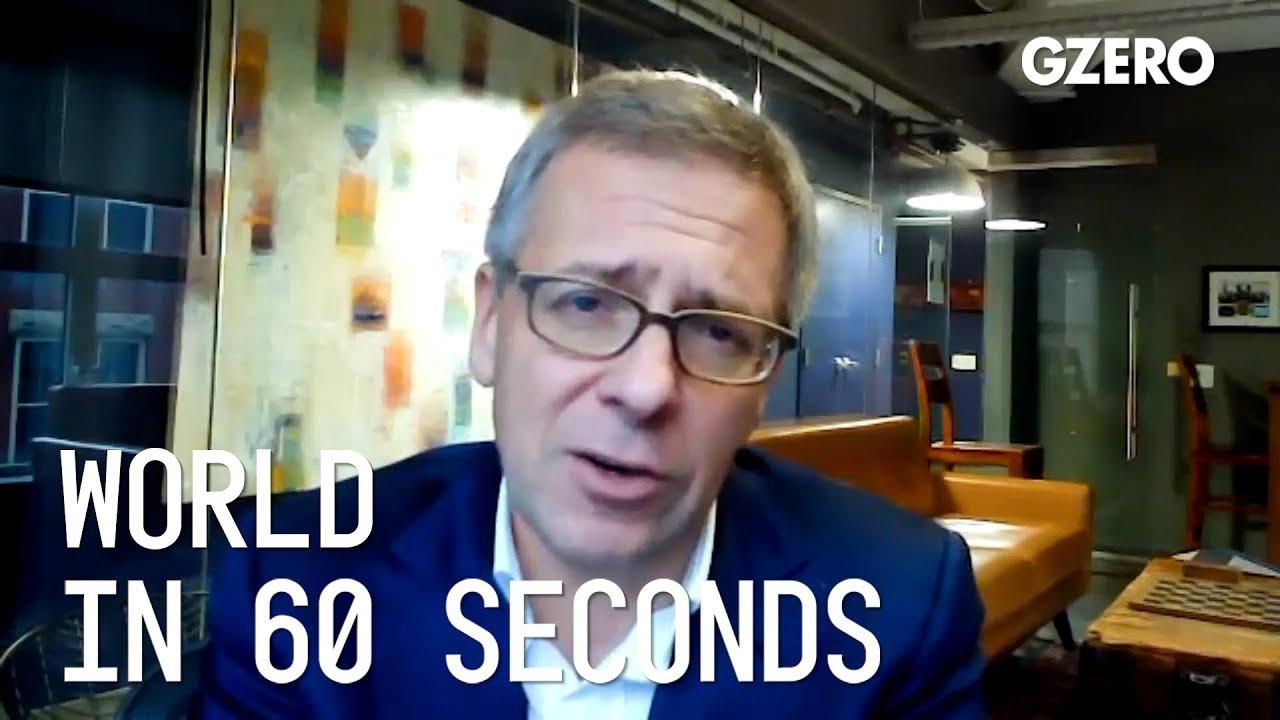Ian Bremmer shares his insights on global politics this week on World In :60.
How did Iran's attention in the World Cup impact protests at home?
Well, I mean, it certainly didn't slow them down any. When you see the Iranian national team first refusing to sing the national anthem and then singing it as woodenly and non-passionately as humanly possible because they've been threatened, and threatened about their families at home if they aren't singing it, that's a hell of a message to send to the Iranian people. And the fact that this country does not reflect its regime, a team does not reflect its regime, it's just extraordinary. And also, I just have to say that all of the pictures and the videos we've seen of the Iranian team and the American team actually coming together, the Americans consoling the Iranians, who have been under such massive stress and crying, and I mean, you can't even imagine performing at that level on the global stage, given the level of additional political pressure and danger that they're actually under. My heart goes out to those guys, and of course to the Americans for doing such a great job representing our country.
Will protests force Xi Jinping to finally abandon China's zero COVID policy?
No, not at all. First of all, those protests are largely already in the rear-view mirror. I do not expect we will see a reprise of them at that size in the near future. Certainly not with people calling for Xi's removal. Big consequences for that going forward. And I think a lot of people understand that. But this also means big consequences for the Chinese economy. And ultimately, difference in somewhat looser interpretation of implementation is very different from, we're stepping away from zero COVID. They're not ready to do that yet. They won't do it yet. And so Chinese growth is still going to be very slow. China's social anger at these policies is still going to be something difficult they're going to have to deal with.
Why is Mexico and the US fighting over corn?
Well, apparently it's because Lopez Obrador is not willing to allow GMO corn from the United States to come in. Now, half of Mexico's corn apparently comes from the United States, and this would be a really big challenge, both for the relationship as well as for Mexican food demand. The Trump administration tried to push AMLO on it, kind of failed. Biden administration pushing AMLO on it, kind of fails. So as a consequence, it's likely to be going towards USMCA, the Mexico Canada deal, into arbitration. And nobody likes to see that, but that's where we are.
- World Cup heats up Argentina’s presidential race ›
- World Cup politics go way beyond Qatar ›
- Great Satan on the pitch, big troubles at home — Iran's World Cup dilemma ›
- Is the Iran nuclear deal dead – again? ›
- Will politics or soccer win Qatar's World Cup? ›
- Why Iranians celebrated their soccer team’s World Cup elimination - GZERO Media ›
More For You
For many in Iran, it’s a waiting game for how long Ayatollah Khamenei has left to live.
Most Popular
In a 30-minute call on Thursday, President Donald Trump reportedly told Ukrainian President Volodymyr Zelensky he wants to end the war with Russia as soon as possible — aiming for a deal by summer, but ideally within weeks.
Former British ambassador to the U.S. Peter Mandelson leaves his residence after he was released following his arrest by London police on Monday on suspicion of misconduct in public office, following the release of U.S. Justice Department files linked to the late financier and convicted sex offender Jeffrey Epstein, in London, Britain, February 26, 2026.
The ghost of Jeffrey Epstein continues to haunt the world.
Think you know what's going on around the world? Here's your chance to prove it.
